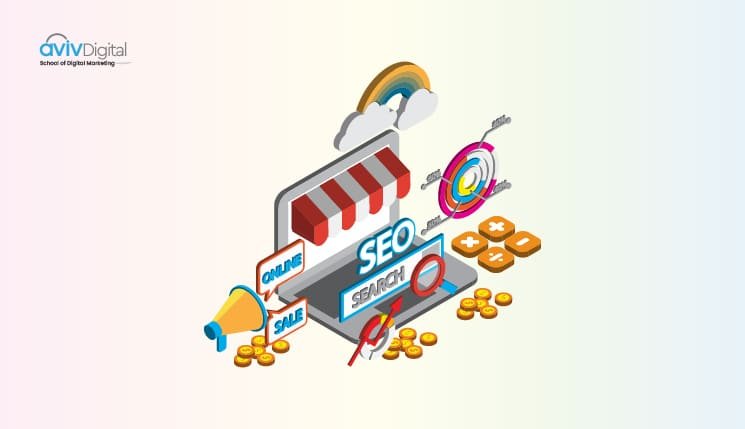

Though SEO is quite serpentine, it plays a pivotal role in today’s digitalized world. Now, companies are giving importance to SEO and are spending a chunk of money on it. But those days are gone where SEO was all about meta tags and backlinks. Now for SEO ranking, one of the most popular search engine Google, uses 200 parameters in its algorithm, including social media signals, user-interaction signals, and trust.
It is true that Google algorithm is very intricate and volatile. What are the factors Google paying attention to when it ranks a website? Below, we are mentioning Google’s 200 ranking factors so that you can have a complete idea of it.
Domain Factors
Google uses some domain factors in their algorithm for giving ranking to a website. Some important domain parameters are,
-
- Domain Age: Though Google prefers those domains which are elder over the new ones, it hardly matters in Google ranking. According to Matt Cutts, “The difference between a blog that’s six months old versus one year old is really not that big at all.”
- Keywords Appear in the Top-Level Domain: If you have your keywords in your domain, then this will act as a relevancy signal. Google bolds those keywords which appear in the domain name.
- Keywords as the First Word in the Domain: The domain which starts with its keyword will get preference over others that don’t have the keywords in their first word of the domain name.
- Domain Registration Length: The valuable domains are paid in advance while on the other hand illegitimate domains are hardly used more than one year. So, this is another factor in deciding the rank of a website.
- Keyword in the Subdomain: Moz’s 2011 panel revealed that if your keywords are in your subdomains, then this will boost your Google ranking.
- Domain History: A site which has volatile ownership or several drops may tell Google to reset the history of the site, refuting links pointing to the domain.
- Exact Match Domain: For a quality site, EMD update gives you an advantage in your ranking. But for a low-quality site, EMD can tarnish your ranking.


- Country Ltd Extension: If your domain contains your country code like .in, .ca, etc. then your site will get higher rank in that particular country. But this may hamper your global ranking.
- Public Vs Private Whois: Private whois information may sometimes hide some information, and in this way, it can give a negative impact on your ranking.
- Personalized Whois Owner: If Google identifies a person as a spammer, then they vigilantly scrutinize the other sites which are owned by that person.
Page Level Factors
-
- Keyword in Title Tag: The title tag plays an important role and thus, sends a strong and robust on-page SEO signal.
- Title Tag Starts with Keywords: The title tag is the second most important piece of a website. So, if your title tag starts with keywords, then your site will get a better ranking by Google.
- Keywords in Description Tag: Though this is not very much pertinent, still it makes a difference.
- Keywords in H1 tag: This acts as another relevancy signal.
- The Keyword is the Most Frequently Used Phrase in the Document: If your keyword appears more time any other words, then this will act as a relevancy signal.
- Content Length: Content with more words always gets preferred by Google.
- Keyword Density: Keyword density is used by Google to determine the topic of a web page. But if you use too many keywords, then it may tarnish your Google ranking.
- Latent Semantic Indexing (LSI) Keywords in Content: The presence of LSI acts as a content quality signal. LSI keywords help search engine to find the exact meaning of words. So, the presence of LSI keywords will enhance your ranking.
- LSI Keywords in Title and Description: LSI keywords in meta tags act as a relevancy signal.
- Duplicate Content: Try to use fresh, relevant and precise content on your site. If Google identifies duplicate content, then your site will not get preferred.
- Page Loading Speed via HTML: Google uses page loading speed to decide the rankings. Search engine spiders can calculate your site’s speed based on a page’s code and file size.
- Rel=canonical: If you properly use this tag properly, then it may prevent Google from considering pages which contain duplicate content.
- Page Loading Speed via Chrome: Google sometimes uses Chrome user data to get a better handle on a page’s loading time, as this takes into account the server speed, CDN usage, and other non-HTML related site speed signals.
- Image Optimization: Images send relevancy signal to search engine through their title, caption, file name, and description.
- Content Update: If you update or edit your site frequently, then Google will give you a thumbs up and will give priority to your site.


- The Magnitude of Content Updates: It is true that the edit and changes of a page always add a freshness factor to that page. So, you should try to add or remove some parts of your content if you want to uplift your SEO ranking.
- Historical Updates of the Pages: How often you update your pages plays a significant role in your ranking.
- Keyword Prominence: If your keyword appears in the first 100 words of your page’s content, then this will send a relevancy signal.
- Keywords in H2, H3 Tags: If your keyword appears in H2 or H3 tag, then this will send a weak relevancy signal.
- Keyword Word Order: An exact match of a searcher’s keyword in a page’s content will generally rank better than the same keyword phrase in a different order.
- Outbound Link Quality: Many people think that linking out to authority sites will send trust signal to Google and will enhance their ranking in SERPs.
- Outbound Link Theme: search engines may use the content of the pages you link to check as a relevancy signal.
- Grammar and Spelling: Proper grammar and spelling are the quality of a good content.
- Syndicated Content: If your page content is original then it will rank higher than those contents which are copied from other sites.
- Helpful Supplementary Content: This basically indicates the quality of your page.
- The Number of Outbound Links: Too many outbound links may hurt your SEO ranking.
- The Number of the Internal Links: The number of internal links to a page uplifts its ranking over others which don’t have many internal links.
- The Quality of Internal Links: Internal links from authoritative pages always get more preference than those which have low PR.
- Broken Links: If your site has too many broken links, then this can hamper your Google ranking.
- Reading Level: Google used to provide you three types of reading levels (basic, intermediate and advanced) for your site. Basic reading level sites are getting preferred because they appeal to the masses.
- Affiliate Links: It is true that affiliate links will not hamper your SEO ranking. But if you have many affiliate links, then your SEO rank will go down.
- HTML Errors: a lot of HTML error will give a sign of poor quality.
- Page Host’s Domain Authority: a page on an authoritative domain will get better rank as compared to those which come from domains with less authoritative.
- Page’s Page Rank: Pages with higher page rank tend to rank better than lower page rank pages.
- URL Length: Search Engine Journal notes that long URLs may hurt search visibility.
- Human Editors: Though it’s never confirmed, Google has filed a patent for a system that permits the human editors to influence the SERPs.
- Page Category: The category the page appears on is a relevancy signal. A page that is part of a closely related category should get a relevancy boost compared to a page that is filed under a less related category
- WordPress Tag: The tags which are WordPress specific add relevancy signal.
- Keyword in URL: This is another relevancy signal.
- URL String: The categories in the URL string are read by Google, and they also indicate what the page is all about.
- References and Sources: If you incorporate references and sources, then they give a sign of quality.
- Bullets and Numbers: bullets and numbers make any content more readable. So, Google prefers those contents which have bullets and numbers.
- Priority of a Page in Sitemap: The priority a page is given via the sitemap.xml file can influence the Google ranking.
- Outbound Links: If your page contains too many outbound links, then this will affect your ranking.
- Page Age: Google prefers an old page that is regularly updated.
- User-Friendly Layout: Google prefers those sites which contain user-friendly layout.
- Parked Domains: Parked domains decrease a page’s search visibility.
- Multimedia: If your site contains images, videos, and other multimedia contents, then these will boost your ranking.
- URL Path: a page which is closer to the home page may get a slight preference by Google.
- Useful Content: Google prefers those contents which are useful and hold a good quality.
Site Level Factors


-
- Content Adds Value: Google is desperately looking for those sites which provide fresh, meaningful and new content. So, if your site contains some unparalleled, new and impeccable content, then it will get preferred by Google.
- Contact Us Page: Google prefers those sites which have proper contact information. So, keep all the necessary information on your contact page.
- Domain Trust: this measure how many links away your site is from highly-trusted sites as it plays an important role in your ranking.
- Site Update: If you update your site frequently, then this will add value to your Google ranking.
- Sitemap: Sitemap helps search engine index to find your page easily. So, if your site contains a site map, then you will get a higher ranking.
- Site Architecture: A site architecture helps Google thematically organize your content, and thus, it will help your site to get better Google rank.
- The Number of Pages: The number of pages a site has is a weak sign of authority.
- Site Uptime: Lots of downtime from site maintenance or server issues may hamper your ranking.
- Server Location: Server location may influence where your site ranks in different geographical regions.
- SSL Certificate: Google use SSL certificate to rank a site.
- Duplicate Meta Information On-Site: Duplicate meta information across your site bring down your page’s visibility.
- Breadcrumb Navigation: This is a style of user-friendly site architecture which users to know where they are exactly on a site. This is another important factor for your ranking.
- Mobile Optimized: If your site is responsive which means it can easily be viewed from mobile devices, then it will get a higher ranking by Google.
- YouTube: YouTube videos are preferred by Google in Search Engine Result pages (SERPs) as b own it. So, try to incorporate some YouTube videos on your site.
- User Reviews: A site’s reputation plays a pivotal role in Google’s algorithm. If your site receives good reviews from the users, then it will get a higher rank over the sites which don’t receive any review from the users.
- Site Usability: A site which is difficult to use or navigate can tarnish your Google ranking. So, try to make a user-friendly site if you want to enhance your Google ranking.
- Use Google Analytics and Google Webmaster Tools: If you use Google analytics and Google webmaster tools, then these can directly influence Google (by providing more data) in making your rank higher in SERPs.
- Service and Privacy Pages: These two pages play a significant role in your google ranking. These two tell Google that the site is owned by a trustworthy person.
- Linking Domain Age: backlinks from an aged domain are more powerful and preferable than the new domains.
- The Number of Linking Root Domains: The number of referring domains is one of the major important factors in Google ranking.
- The Number of Links from Separate C-class IPS: Links from separate class c IP addresses suggest a wider breadth of sites linking to you.
- The Number of Linking Pages: The total number of linking pages is another important ranking factor.
- Alt Tag: Alt text is an image’s version of anchor text.
- Links from .edu or .gov Forms: If your site receives links from .edu or .gov domains then this will enhance the authenticity of your site, and your rank is also elevated in SERPs.
- Authority of Linking Page: The authority (PageRank) of the referring page is a core factor which plays an important role in your Google ranking.
- Authority of Linking Domain: The referring domain’s authority plays a significant role in your site’s ranking.
- Links from Opponents: Links from other pages ranking in the same SERP may be more valuable for a page’s rank for a particular keyword.
- Social Shares of the Referring Page: The number of social shares of a referring page may influence the ranking of a site.
- Links from Bad Neighborhoods: Links from back neighborhoods can hurt your SEO ranking.
- Guest Posts: Though this is not mandatory still it sends a good message to Google and influences in your ranking.
- Links to Homepage Domain that Page Sits On: Links to a referring page’s home page plays a special role in evaluating your site’s ranking in SERPs.
- Nofollow Link: Having a certain percentage of nofollow links can indicate a significance between a natural link profile vs. unnatural link profile.
- The Diversity of Link Types: Links from diverse sources can enhance your ranking in SERPs.
- Sponsored Links: Sponsored links, link partners, etc. may decrease the value of a link.
- Contextual Links: Links embedded inside a page’s content are considered more powerful and robust than links on an empty page.
- Excessive 301 Redirects to Page: Links coming from 301 redirects may tarnish your page ranking.
- Backlink Anchor Text: Though anchor text is not important, still sends a relevancy signal to Google.
- Internal Link Anchor Text: This is another relevancy signal, and it is different from backlink anchor text.
- Link Title Attribution: The link title conveys a weak relevancy signal to Google.
- Country TLD of Referring Domain: Getting links from country specific top level domain extensions may help you to get a better rank in Google.
- Link Location in Content: Links in the beginning of a piece of content carry more weight than those links which are placed at the ends of a content.
- Link Location on a Page: Where a link appears on a page is really important in your ranking. Links that are embedded in a page’s content are more powerful and strong than links in the footer.
- Link Domain Relevancy: A link from a site in a similar niche is truly more prevailing and stronger than a link from a completely different unrelated site.
- Page Level Relevancy: Link from a page which is closer to page’s content is more powerful than a link from an unrelated page.
- Text Around Link Sentiment: Links with positive sentiments will always be preferable and powerful.
- Keyword in Title: Google prefers those links on pages that contain your page’s keyword in the title.
- Positive Link Velocity: A site with positive link velocity usually gets a SERP boost.
- Negative Link Velocity: Negative link velocity can significantly reduce your ranking and popularity.
- Links from Hubpages: Links from Hubpages on a certain topic will always get preferred by Google.
- Links from Authority Sites: Links from authority sites are preferable than those from small and micro niche sites.
- Links to as Wikipedia Source: If you get a link from Wikipedia, then this will give more advantages and will certainly improve your search engine ranking.
- Co-occurrences: the word that tends to appear around your backlinks tells Google what that page is about.
- Backlink Age: Older backlinks have more ranking power than the new backlinks.
- Link from Real Sites Vs Splogs: Google gives more priority to those links which came from real sites than those links which came from fake blogs.
- Natural Link Profile: A site with a “natural” link profile receives much higher rank than the others.
- Reciprocal Links: you need to avoid excessive link exchanging.
- User Generated Content Links: Google can identify links generated from UGC vs. the actual site owner.
- Links from 301: Links from 301 redirects may lose its position as compared to the direct links.
- Schema org Microformats: Pages that support microformats may rank above those pages which don’t support it.
- DMOZ Listed: many people believe that Google gives DMOZ listed sites a little extra advantage.
- Trust Rank from Linking Site: The trustworthiness of a site determines how much trust rank it will get from Google.
- The Number of Outbound Links on the Page: A link on a page which contains a number of outbound links may get a lower rank in SERPs.
- Forum Profile Links: Google may devalue the links from forum profiles.
- Word Count of Linking Content: A link from a 1000-word post is more valuable and important than that a link which contains only a 25-word snippet.
- The Quality of Linking Content: Links from poorly written or inferior quality content don’t get much value as links from well-written, coherent and multimedia-enhanced content.
- Sitewide Links: Sitewide links are compressed to count as a single link.
User Interaction


-
- Click Through Rate (CTR) for a Keyword: Pages which receive more CTR may get SERP boost for that particular keyword.
- Organic CTR for all keywords: A page’s organic CTR for all keywords gets a better rank.
- Bounce rate: The pages where people quickly bounce is probably not very good for SEO ranking.
- Direct traffic: sites which receive direct traffic are preferable than those which get a very little traffic.
- Repeat traffic: The site which gets repeated traffic may get a higher rank by Google in SERPs.
- Blocked sites: This sends a quality signal to Google.
- Chrome bookmarks: Pages which get bookmarked in Chrome might get a boost.
- Google toolbar data: This is another ranking signal.
- The number of comments: The pages which receive more comments are more authentic and trustworthy, and hence, they receive higher ranks.
- Dwell time: If people spend a lot of time on your site, then it may be used as a quality signal.
Special Algorithm Rules


-
- Query deserves freshness: Google gives newer pages a boost.
- Query deserves diversity: Google adds diversity for keywords like Ted, WWF, ruby, etc.
- User browsing history: Sites that you frequently visit may get a boost in ranking.
- Use search history: Google is more likely to show toaster review sites higher in the SERPs.
- Geo targeting: Google prefers to sites with a local server IP and country-specific domain name extension.
- Safe search: Search results with curse words or adult content won’t appear for people with safesearch turned on.
- Google + circles: Google shows higher results for authors and sites that you have added to your Google + circles.
- DMCA complaints: Google down ranks pages with DMCA complaints.
- Domain diversity: Bigfoot update adds more domains to each SERP page.
- Transactional searches: Google sometimes displays different results for shopping-related keywords.
- Local searches: Google often places Google+ Local results above the normal organic SERPs.
- Google news box: Certain keywords trigger a Google News box.
- Big brand preferences: Google gives big brands a boost for certain short-tail searches.
- Shopping results: Google sometimes displays Google Shopping results in organic SERPs.
- Image results: Google prefers image results in SERPs.
- Easter egg results: Google has a dozen of Easter egg results.
- Single site results for brands: Domain or brand oriented keywords bring up several results from the same site.
Social Signals
-
- The Number of Tweets: The tweets of a page directly influence its ranking.
- Authority of Twitter Users Accounts: Tweets coming from an account are more powerful than the tweets coming from a new account.
- The Number of Facebook Likes and Shares: Facebook shares play an important in your ranking. If you have more shares, then your page will get elevated in the ranking.
- Authority of Facebook Accounts: Facebook shares and likes coming from popular Facebook pages are more powerful.
- Pinterest Pins: Like Facebook and Twitter, Google considers Pinterest Pins a social signal. This will influence your ranking.
- Votes on Social Sharing Sites: Google uses shares at sites like Reddit, Stumbleupon, and Digg as another type of social signal
- The Number of Google+: Though some people think that Google + doesn’t have any direct influence on Google ranking, still Google can’t ignore its own social network site.
- The Authority of Google+ User Account: Google would weigh Google +’s coming from authoritative accounts.
- Known Authorship: Google uses some form of authorship to determine influential content producers online and give them a boost in ranking.
- Social Signal Relevancy: Google probably uses relevant information from the account sharing the content and the text surrounding the link.
- Site Level Social Signals: Sitewide social signals may increase a site’s overall and its rank.
Brand Signals
-
- Brand Name in Anchor Text: Brand name in anchor text provides a strong signal.
- Branded Searches: If people search for your site in Google, Google takes this into consideration when determining a brand.
- The Site has Facebook Pages and Likes: If your brands have Facebook pages with likes, then they will get higher rankings in SERPs.
- The Site has a Twitter Profile with Followers: Twitter profiles with a lot of followers signals a popular brand.
- Official LinkedIn Company Page: Most real businesses have company Linkedin pages.
- The Employee Listed at Linkedin: If your employees are on Linkedin, then this will work for your company as a brand signal.
- The Legitimacy of Social Media Account: a social media account with 10,000 followers, and a lot of posts will boost up your company’s ranking.
- Brand Mentions on News Sites: Big brands get mentioned on Google News site all the time, and this will uplift their rankings.
- Co-citations: Google likely looks at non-hyperlinked brand mentions as a brand signal.
- The Number of RSS Subscribers: Google looks at RSS subscriber data as a popularity of a brand.
- Brick and Mortar Location with Google+ Local Listing: Google fetches location data to determine whether a site is a big brand or not.
- The Website is Tax Paying Businesses: Google may look whether a site is associated with a tax paying business or not.
On-site Webspam Factors
-
- Panda Penalty: sites with low-quality content are less visible in SERPs.
- Links to Bad Neighbourhoods: Linking out to bad neighbourhoods may hurt your visibility and ranking.
- Redirects: Sneaky redirects is a big no.
- Popups: Pop-ups and distracting ads are the sign of low-quality.
- Site-over Optimization: This includes onpage factors like keyword stuffing, header tag stuffing, excessive keyword decoration, etc.
- Page-over Optimization: Unlike Panda, Penguin targets individual page.
- Ads Above the Fold: Google penalizes those sites which have too many ads.
- Hiding Affiliate Links: If you try to hide affiliate links, then you can get penalized by Google.
- Affiliate Sites: Google scrutinizes those sites that monetize with affiliate links.
- Autogenerated Content: If you use auto-generated content, then your site will be penalized.
- Excess Page Rank Sculpting: Google discourages excess page rank sculpting.
- IP Address Flagged as Spam: If your server’s IP address is flagged as spam, then this may hurt your ranking.
- Meta Tag Spamming: If Google thinks that you have added keywords to your meta tags, then your rank will get hampered.
Off-page Webspam Factors
- The Unnatural Influx of Links: A sudden (and unnatural) influx of links is a sure-fire sign of phony links.
- Penguin Penalty: Sites that are hit by Google Penguin are less visible in search engine pages.
- Link Profile with a High Percentage of Low-Quality Links: Lots of links from sources commonly used by black hat SEOs may be a sign of gaming the system.
- Linking Domain Relevancy: The sites with an unnaturally high amount of links from unrelated sites were more susceptible to Penguin.
- Unnatural Links Warning: Google sent out thousands of Google Webmaster Tools notice of detected unnatural links messages. This basically hampers your ranking.
- Poison Anchor Text: Having “poison” anchor text pointed to your site may be a sign of spam or hacked site.
- Manual Penalty: Google has been known to hand out manual penalties, like in the well-publicized Interflora fiasco.
- Selling Links: selling links can hurt your visibility and tarnish your ranking.
- Google Sandbox: New sites that get a sudden influx of links are sometimes put in the Google sandbox, and this may limit their search visibility.
- Google Dance: Google dance can temporarily shake up your ranking.
- Disavow Tool: Use of the Disavow Tool may make a negative impact on your site’s ranking.
- Reconsideration Request: A successful reconsideration request can lift a penalty.
- Temporary Link Schemes: Google has caught onto people who create and remove spammy links.
While giving a rank to a particular site, Google usually considers a chunk of parameters. So, it can be concluded that Google’s algorithm is very serpentine and it evaluates several factors before giving rank to a site.
Aviv Digital is one of the best digital marketing training institutes in Calicut, Kerala. We offer a wide variety of globally recognized certification programs which includes SEO, SEM, SMM, Email Marketing and Inbound Marketing course. For more details, Contact us at: +91 9037 489 577









